Problem with reviewing a book is that you have to read the damn thing before writing your opinion of it, easy enough if you’re a speed reader but I read too slowly and by the time I get to the end of a book my enthusiasm to share has often evaporated. This book about Romania took me ages to read.
Often I reach a moment of revelation early on in a book and think “this is the best book I have ever read…I must review it.” Nine times out of ten I don’t bother and recently a friend pointed out that I tend to get rather over-enthusiastic about the book I’m reading. The ancient Greeks used to say that enthusiasm was a disease and, if so, then I am a terminal case.
The book I’m reviewing here is called The Last Hundred Days by Patrick McGuiness and I went through the following stages with it: excitement at getting my hands on a copy (I had heard it was good, it has rave reviews and a great cover); pleasure at reading the superb writing and then disappointment as the story was completely out of synch with everything I know about Romania.
“Sinister, comic and lyrical,” blares a review from The Independent on the back cover: “it vividly captures the end of a long nightmare.” This is true: the book brilliantly describes the crushing boredom, pointlessness and bureaucracy of life in a dictatorship. The Times is quoted as saying “stunning” about the tome and the New York Times describe it as “observant, reflective, witty and precise.”
But the plot reveals the same sort of drift that is used so effectively to describe Romania under Communism: the story doesn’t really go anywhere. The descriptions are beautiful, the writing superb but when it comes to the characters it all falls apart as they are so unconvincing.
The main character is an English guy who gets a job teaching English in Bucharest in 1989 but never seems to do any teaching. It is set in the year of Romania’s great revolution and I was hoping the author would shed some light on an event which is still wrapped in mystery (no luck on that front: there are almost no political/historical insights and no suggestion of who ordered the shooting of the protesters in December 1989).
His students all speak fluent English and within a few chapters he is chatting in Romanian like a native. When I moved to Romania in 1990 very few people knew English – stimulating me to quickly learn Romanian – and those who did had none of the fluency this author gives them. His Romanian characters speak English as if they were educated in British schools, using cultural references that not even Americans would understand.
 The plot is the development of his relationships with his colleagues and students and the revolution passes by as a confusing sideshow. He comes across as a geek but effortlessly seduces the best looking girl in the class, the daughter of one of the most formidable men in the country – the Minister of the Interior.
The plot is the development of his relationships with his colleagues and students and the revolution passes by as a confusing sideshow. He comes across as a geek but effortlessly seduces the best looking girl in the class, the daughter of one of the most formidable men in the country – the Minister of the Interior.
The Last Hundred Days is a novel but it breaks the main rule of good fiction: make the characters true to themselves. The author dabbles in the absurd and this is interesting as Romania under Communism was absurd in many ways and one of the world’s greatest absurdists was the Romanian-born playwright Eugen Ionescu. But Patrick McGuinness failed to carry me off into his land of make believe, although he succeeded with the London-based book critics.
The most interesting character is a teaching colleague called Leo. It’s not clear if this Leo is Romanian or English as he’s fluent in both cultures, but he’s attributed with a series of skills which are both fabulous and highly unlikely in Romania at that time. Leo’s day job is to teach English at Bucharest University but nobody in authority objects to the fact that he never shows up. He has an array of photographic and video equipment and unparalleled access to the embassies and foreign media – whom he supplies with images of the ongoing demolition of Bucharest’s ancient buildings. He’s also writing various books about the old city.
In my experience, both teaching English and writing a book are really energy-consuming activities and, with all his video-photography-secret-filming-spying work, I would have thought that this chap would have his hands full. But no, these activities are just his hobbies – Leo’s real function is to be the biggest black marketer in Bucharest.
This is my favourite passages in The Last Hundred Days:
“Leo’s business partner was known as ‘the lieutenant’: a tattooed, multiply earringed gypsy in riding britches and Cossack boots who revved his Yamaha Panther through the slums of Bucharest like an Iron Curtain Easy Rider. He wore a blue tunic with gold buttons and officer’s chevrons – hence his nickname – and resembled a veteran of some Mongol rape-and-pillage squad. The Lieutenant took care of logistics. He commanded an army of Poles and Romany caravaners who moved about in the night, across fields and mountains and urban wastelands, slid under razor wire and swept over electric fences, insubstantial as the dawn mist. They siphoned off petrol from the state service stations and disappeared equipment from the malfunctioning factories; they subtracted produce from the collectivised farms and re-routed flour and cooking oil from the night convoys. Inventories all over the country adjusted themselves to their passing.”
The most remarkable thing about Leo’s fairy-tale existence is that he has no problem with the dreaded Securitate, one of the most formidable secret services in the former Communist bloc. It makes for good reading and may be convincing to those who know little about life under Communism. The kind of corrupt activities that McGuinness describes certainly did go on under Ceausescu’s rule – and some say that the black market kept the people supplied with food – but it was monopolised by senior officials within the Communist Party and their illicit partners. One of the features of Communism is that petty crime got virtually eliminated and there is no way that such a big private enterprise like Leo’s would have been tolerated.
The Hundred Days reminds me of the most famous book ever to be set in Romania – Dracula – a book that was also written in England. Both books have some real merits, but Dracula is a much better novel in that the characters are convincing – even the bloodthirsty count who travels around in a coffin, can turn into a bat and lives forever.
This article was also published on Rupert Wolfe Murray’s new travel blog: www.wolfemurray.com

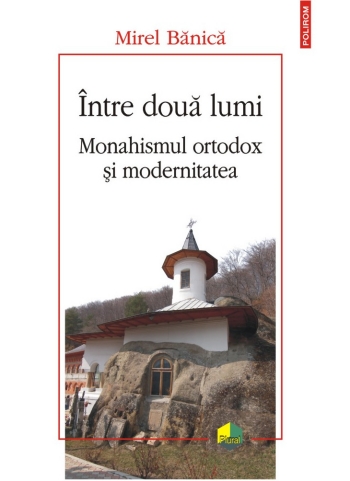
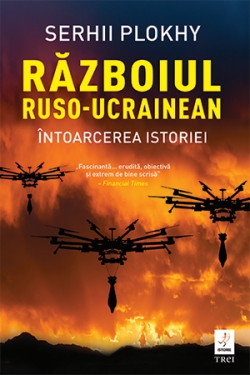
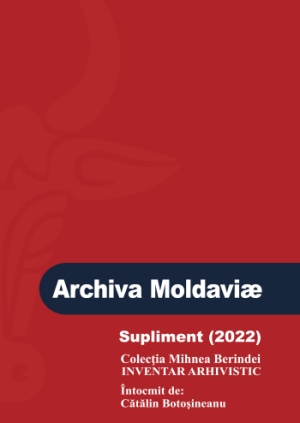
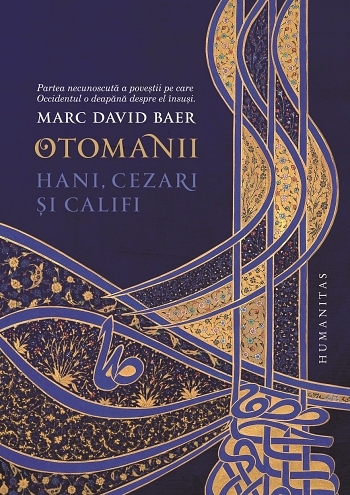
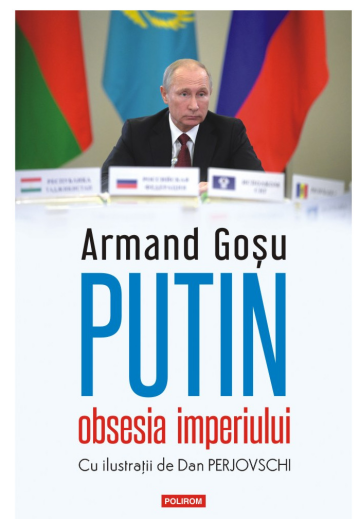
 Aikido cu mintea si corpul coordonate. Invatati cum sa va relaxati si cum sa va pastrati calmul in conditii de stress.
Aikido cu mintea si corpul coordonate. Invatati cum sa va relaxati si cum sa va pastrati calmul in conditii de stress. 
If you want to read a book describing hoe Romania looked like before 1989, read „Dean’s December” by Saul Bellow……
I remember that even during communist times there were enough people speaking English. It wasn’t like now, for sure, and I reckon it’s true that at the beginning of ’90s one had few chances to find good English speakers in the street, randomly asking for directions for example, but that doesn’t mean there weren’t people who spoke English. Probably most of them just left the country soon after revolution or University square events, or first „Mineriada”.
I know it’s hard to comprehend for some people, but communism had lots of paradoxes.
I remember looking for English speakers in Bucharest in 1990 and none were available as those that were had been hired by foreign journalists (and they were superbly fluent it has to be admitted). In the provinces and even in Bucharest it was very rare to run into English speakers; now you run into them everywhere and international business people comment on how many people know English here (way more than older Capitalist countries like Greece and Turkey).
„The kind of corrupt activities that McGuinness describes certainly did go on under Ceausescu’s rule … but it was monopolised by senior officials within the Communist Party and their illicit partners. One of the features of Communism is that petty crime got virtually eliminated and there is no way that such a big private enterprise like Leo’s would have been tolerated”
I did not read the book but from what you say Leo’s was not „petty crime” but „a big private enterprise”. As such it was certainly supervised „by senior officials within the Communist Party and their illicit partners”. That explains everything and all of a sudden the book becomes credible :)
I am reminded of a scene in the movie Patton, where the general watches a parade of the palace guards riding dromedaries and brandishing their lances in the Moroccan sun- he turns towards the Sultan and smiling, quips : This is wonderful Your Majesty- it looks like a mixture of Hollywood and the Bible !
You mentioned Dracula- which is far more Victorian than fleshed out with any resemblance of ‘local color’. Even the films based on it, like Murnau’s or Herzog’s Nosferatu or Coppola’s Dracula, are outlandish and in this sense remain true to the spirit of the book. Yet, outlandish as it undoubtedly is, Stoker’s novel is the first thing that comes to mind whenever Westerners are asked about Romania. There seems to be a geographical and cultural point, either in Europe or the rest of the world for that matter, beyond which Ruritania makes for an easier and more compressed presentation.
The period described in the book you reviewed is to me 1001 Nights of rationed food, of no electricity, of no heat and most of all, of no hope- but this was my perception and not necessarily the one and only facet of that local Universe at the time. I am not sure to what point a Westerner has to ‘go native’ in order to capture the essence or at least truthful and plausible parts of the world he is exploring- with the considerable advantage of the outsider who can also get out of it, as opposed to the people he meets, the characters he describes or invents. As a child, my perception of India was largely influenced by Kipling, or later on that of the Far East by Conrad or Maugham. Despite being classics, are they not more about the West than the East ? I can’t think of anyone from the West ‘diving deeper’ than T.E. Lawrence did in the Arabia of his time. We find a combination of a most potent Oxfordian academic background with the experience of living not just among the natives, but like a native. Yet, reading The 7 Pillars of Wisdom, despite the depth of penetration there are times when one feels as if leafing through an herbarium.
Peter Ustinov said that the secret to speaking a language fluently is to also think in it while talkin- is that enough though, when it comes to immersing oneself in a foreign culture ? And to what extent is this even necessary ? Thousands upon thousands of Romanians speak English, or even live in the UK and this type of opening definitely and indisputably makes them more European, more Western. But British they will never be and cannot be- and is that even necessary, beyond ‘keeping the appearances’ ? Or for that matter, do they become Italians or Spaniards where the added advantage of a ‘Latin’ culture exists ?
You, Mr. Murray, will one day return to UK and become a Brit with extended Eastern experience- most of these people live in a world which is neither Western nor Eastern and pertain to a limbo which is the result of the massive upheavals caused at the end of the ’80’s.
My revelation as far as English writing about the East and especially Romania, did not come from Manning’s novels but the from the historian dynasty of father and son- the Seton Watsons.
As a Westerner, there is plenty to be critical about when dealing with the East- none of us, born in Romania, would deny that. What thrilled me about the Seton Watsons was a grain of sympathy for the subject(s) of their study- a grain which seems to be ever so lacking these days in Western punditry.
Thanks for this very interesting reply (thanks for all the comments actually).
My main point about a novel is that the characters must be true to themselves and the world the author created, which is why Dracula the novel works. Even though it is outlandish the characters are true to the time and place he creates – they are consistent and coherent.
You make a very interesting comment about me:
„You, Mr. Murray, will one day return to UK and become a Brit with extended Eastern experience- most of these people live in a world which is neither Western nor Eastern and pertain to a limbo which is the result of the massive upheavals caused at the end of the ’80′s.”
Two points here: I’m not so sure I will ever return to live in UK as I much prefer it here and in the East. I love India too. But with modern communication maybe our cultural differences are being eliminated and everywhere is becoming the same.
@Rupert Murray
Thank you for your kind reply. In terms of the corruption existing before 1990, the extent, the breadth and the width thereof are next to impossible to fathom. But since this is a country which already has had its black market millionaires in a fully Stalinist-like era, maybe no scenario is too far fetched to at least deserve a second look :). We Easterners, if I may say so, feel a certain disappointment in being late at the table- in the sense that the West has already had its ‘fun’ and all our ‘lagging’ is next to impossible to recuperate, unless the West decays at a much faster pace :) But changes there have been, a plenty, and regardless of whether some of us live abroad or still in Romania, at least a small minority would like to see things shifted on a different course.
I am glad you think that at one point West and East shall meet, on a virtual midway point, even though at the present moment this is far from being obvious. Maybe this type of fusion, as remote as it seems now, would direct humanity further from ways that have been tried and tested repeatedly over the course of history, and just as consistently, don’t work :).
I wish you all the best in your Eastern adventure.
In my experience a lot of the Romanians that emigrate to the United States blend in nicely over let’s say 15 years. They are of course shaped by the time they lived in Romania and by the emigration experience, but they don’t stand out all that much in the US and certainly not in places like New York City. If Romanians cannot become British or Italian, it might have more to do with how you define those concepts than it does with them being from Romania.
@Bogdan B.
Blending in fairly well- yes, I totally agree. But blending in means not sticking out and that in itself is not being ‘native’. And yes, any nationality would be submitted to a similar process, not just Romanians.
I used to have a Swiss boss, who was originally from a small village near Zurich- German speaking. He had left Switzerland some 25 years ago and he told me that he could never possibly readapt- which is why he was very sympathetic to the plight of foreigners in Switzerland :) But in a metaphorical way, this is what I mean by ‘native’.
There is a superb poem by Cavafis- a poet who is oft quoted in Durrell’s Alexandrian Quartet- the poem is about Odysseus and his final return ‘home’, where the streets look foreign and no one recognizes him. To become invisible, as a foreigner, in your place of birth, is both fascinating and heart rending at the same time. It happens to all who leave :)